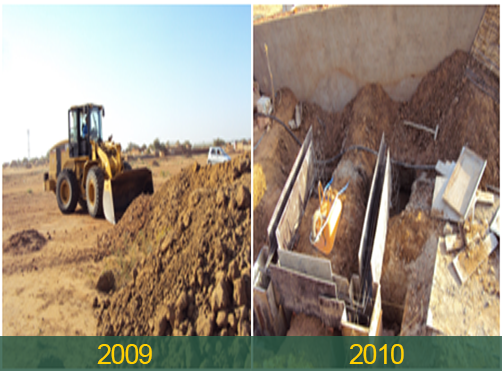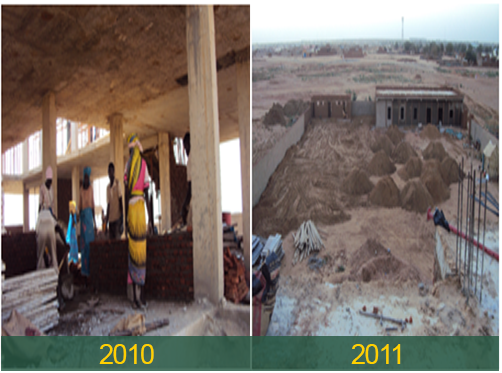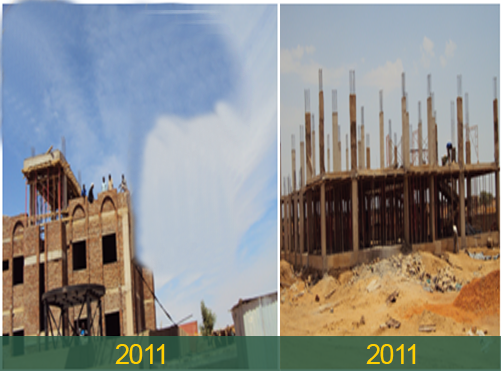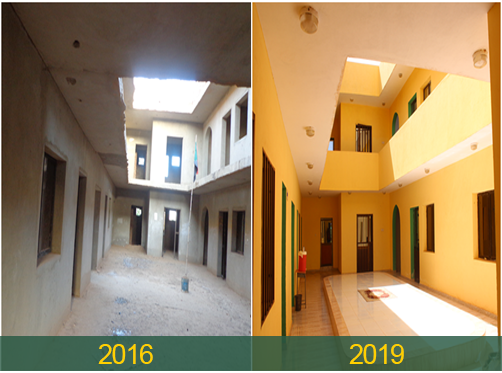About Us
In Darfur, in western Sudan, the war’s profound impact on the humanitarian situation in general, and on all levels of education in particular, increased the society’s need for education to rise again, to plant seeds of hope by strengthening peace and preserving the culture. The Sub-Saharan University College will help the children of displaced persons and the children of vulnerable families. Sub-Saharan University College is established to provide quality education opportunities to people in need and fill the government and private provision of higher education.
About The College
Africa’s beauty is characterized by the verdant nature of the south and the arid north separated by the largest desert in the world – the Sahara. It divides the continent into countries north of the Sahara and forty-eight sub-Saharan countries, inhabited by about one billion citizens, with many agriculture, grazing, and mining activities. The sub-Saharan countries represent the future of the world because they reap their vast resources from land not yet fully exploited for economic growth to serve their diverse social and cultural needs.
THE NAME AND THE LOGO OF THE COLLEGE
We believe in the pioneering role of a specialized educational institution to preserve and develop scientific research that benefits the entire content; hence, the name Sub-Saharan University College.
The Sidra Tree is a powerful plant that resists desertification. Its image in the Coll
ege’s logo signifies its desert location. The image of a book
symbolizes science and knowledge to keep the land green

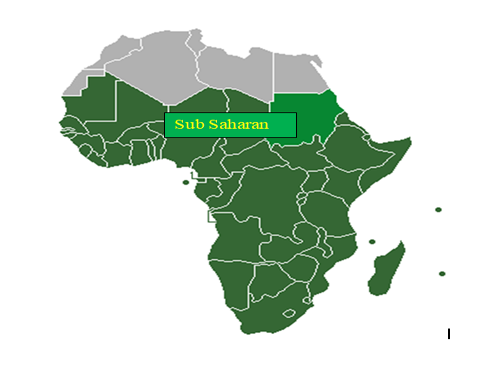

Why Sub Saharan College in Darfur?
Darfur is the first geographical region separating the desert north and the green South.We areresistingthedesert’sincursion in the South by raising the awareness of the community about the need to protect the environment. We are pursuing research to stop desertification and drought, and to develop desert areas using the latest technology, land management practices, and resources. Later comes the study of the most common diseases of sub-Saharan Africa to uncover new treatments from environmental sources.



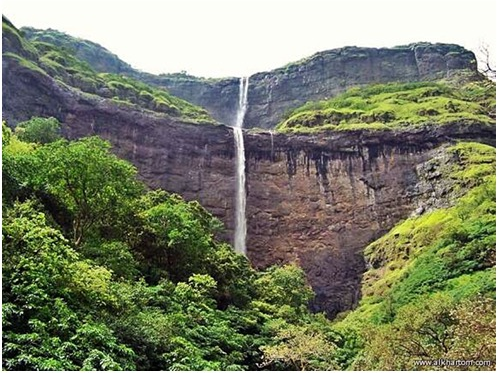
AL_FASHER The Home Town of The College
Al Fashir is the historical and political capital city of Darfur, Sudan. It is a large City in the Darfur region of northwestern Sudan. Recently the city has experienced a significant economic and population boom due to nearby AbuShouk and AlSalam IDP camps.
We have chosen Al-Fasher as a home for Sub-Saharan for its prominent location to serve the people who are in need and to resemble and reflect the purpose of the Sub-Saharan mission and vision.

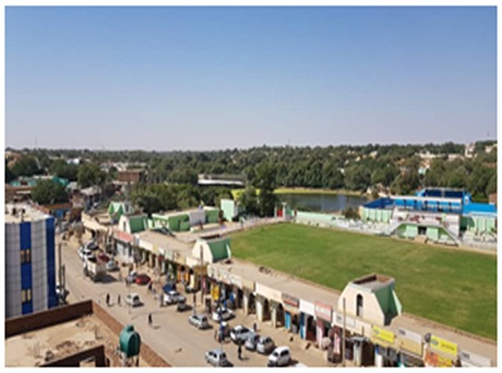


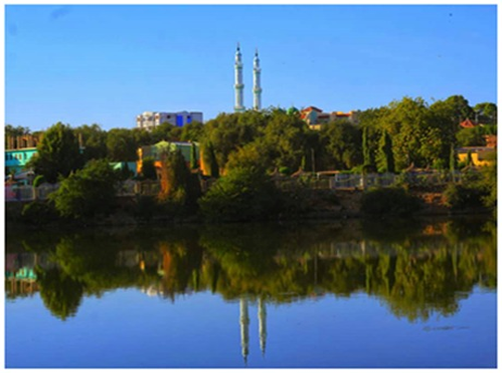
Vision / Mission / Objectives
Mission
To create a transformative educational experience for students by creating a collaborative environment for new ideas, where research, creativity and innovation can flourish, and ensuring an academic environment where students can achieve their full potential.
Vision:
Sub-Saharan College strives to have a significant transformative impact on community through dedicated higher education standards, scientific research, creativity and innovation. We aim to be the region’s leading university in providing the best and latest findings in university scientific research by the year 2025. We will do this by achieving a distinguished position using the most skilled scientific and literary expertise and refining and integrating it into the societies of the states of Darfur and wider Sudan.
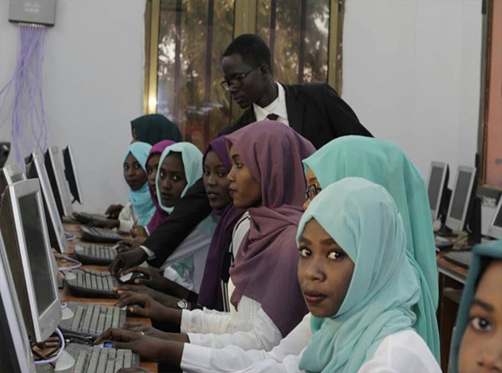
Our Message:
- To provide educational, technical, technological and research services of the highest quality according to national and international standards; be distinguished in improving studies to meet the challenges of the age; contribute positively to the needs of the society and its future aspirations.
- To provide highly qualified and experienced teachers, administrators and technicians, as well as an ideal educational environment based on the consolidation of a scientific nucleus supported by research and accumulation of academic experiences.
- The College places great emphasis on the quality of modern technical education in line with the requirements of the student and his/her freedom of choice.
- The College strongly believes in the principle of community service through the various disciplines required for a developed society to complement its system by establishing research and scientific centers, seminars, conferences and workshops throughout the year to contribute to the integration and development of different sectors of society.
- The College will follow the method of study, planning and evaluation of performance and continuous development in all its steps and activities in different areas.
- The College believes in the principle of cooperation and coordination with various universities and scientific institutions inside and outside the country.
- The College will work with a precise system to connect all its faculties and departments with an information network that complies with the spirit of the time and communication technology

Core Values
- Dedication: Reflected in our commitment to excellence
- Impact: Reflected in our commitment to address critical issues facing our communities and improving the human and individual condition in Sudan and Africa
- Collaboration: Reflected in our interdisciplinary partnership with other universitiesin Sudan and aroundthe globe
- Integrity: Reflected in our adherence to the highest ethical standards and commitment to transparency and accountability and good governance
- Sustainability: Reflected in our commitment to follow our intensive strategic plans, intellectual curiosity, and approach to responsible financial planning.
Strategic and Objectives
Main Objective:To transform and enable Higher Education system in Sudan
Sub Saharan College will prepare distinguished graduates that are competitive, creative, and responsible, and who contribute significantly to the sustainable development of society
Sub-Objectives
- To provide a holistic education through transformative, learner-centric, research-informed, competency-based and digitally enriched.
- Serve and develop the community by encouraging and focusing on scientific research;
- Provide educational opportunities for the children of families with limited income and orphans;
- Develop scientific competencies and qualified cadres to serve the needs of different sectors of society and enhance progress in those sectors;
- Achieve academic excellence according to the standards of institutional academia;
- Enhance the role of the college in transferring knowledge and skills to improve society;
- Provide opportunities for postgraduate studies and scientific research by establishing links
- with regional and international universities and scientific and research institutions.
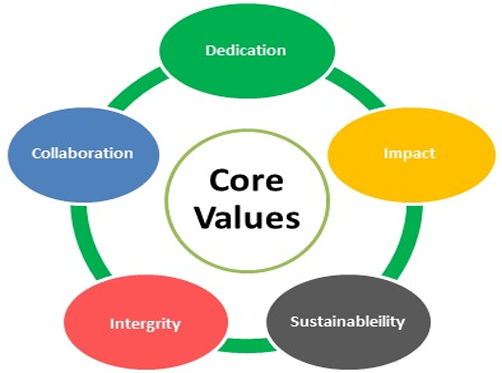
The History of the College
The establishment of a university college in accordance with internationally recognized standards of university education, providing services and knowledge to all the people of the Sudan, in a spirit of peace, has been a challenging dream. Dr. SulaimanAbdulkarimGiddo, has been dedicated to the idea since 1997. After twenty years of persistent effort to achieve that goal, the dream came true in 2017 with the opening of Sub-Saharan University College (SSUC) in El Fasher, North Darfur, Sudan..
Dr. Sulaiman and his team – Susan Burgess-Lent, dedicated supporter David Frieze and his family, Ante up for African, and Members of the Board of Directors – were able to assist over sixty thousand students in North Darfur and in Eastern Chadbetween 2006-2010.
Finally Sub-Saharan University College is opening, to provide quality education opportunities to people in need, and to fill the gap in government and private provision of higher education reached %21 according to the 2015 statistics of general education planning in the Sudan.
In Darfur, in western Sudan, the war’s profound impact on the humanitarian situation in general, and on all levels of education in particular, increased the society’s need for education to rise again, to plant seeds of hope by strengthening peace and the preserving the culture. The College will help the children of displaced persons in addition to the children of vulnerable families. Up to twenty percent of students will receive full or partial scholarships, and the number will increase as we grow.

